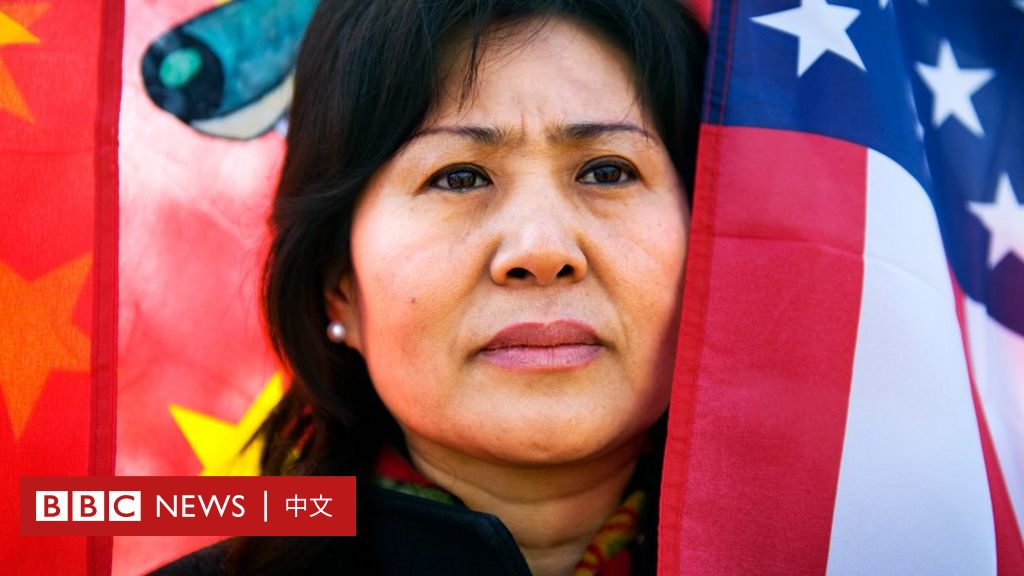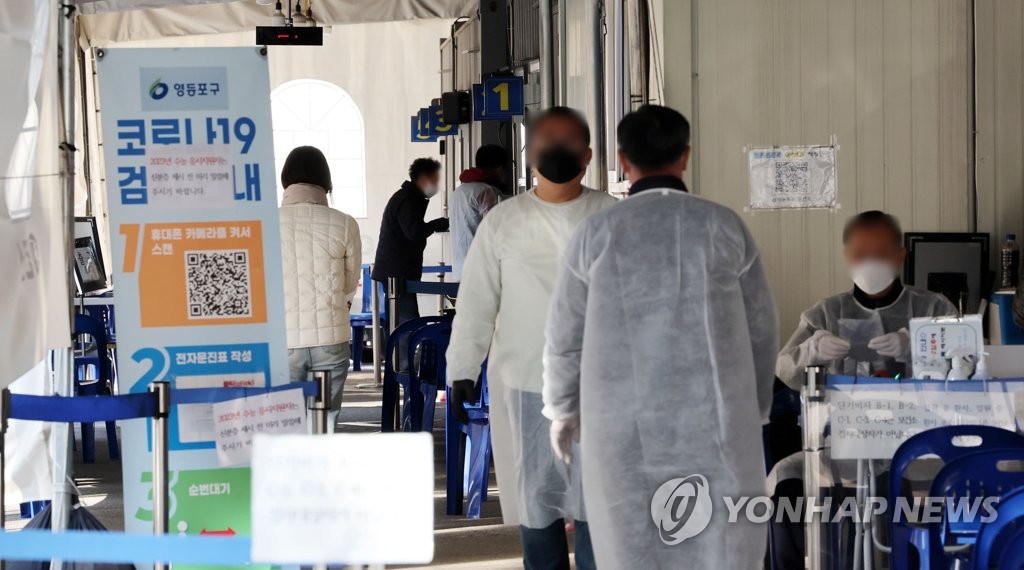- Michael Bristol
- BBC reporter
image source,Getty Images
Geng He has been active for many years, hoping that the outside world will pay more attention to Gao Zhisheng’s experience.
Geng He was originally an ordinary woman living in China, but as a wife and mother she suffered persecution, surveillance and separation. As Xi Jinping begins her third term as the top leader of the Communist Party of China, her experiences over the years have revealed a dark side to China.
Geng He clearly remembers where he first realized the strength of state power. That day, he took his daughter to a barber in Beijing for a haircut.
Suddenly, dozens of people burst in and told them to follow them. That’s the secret police.
At first, Geng He didn’t know what happened or who these people were. He asked if he could finish his hair before leaving. The answer is: no, you must leave immediately.
He went out to see that there were other policemen on the street; when he returned to his residence, there were still police waiting for them down the hall.
He said: “I looked up and saw that the first and second floors were very crowded and they were all full.”
The apartment they lived in was ransacked and she was told that her husband Gao Zhisheng had been arrested at her sister’s home in Shandong.
It was 2006 and since then the quiet life of the family has come to an end.
Human rights lawyer
Geng He’s husband, Gao Zhisheng, is a lawyer. He was once considered one of China’s top ten lawyers, but then he started defending the rights of those the authorities didn’t want to protect.
Among those he helped defend were members of the banned Falun Gong, Christians in the underground church, and petitioners against forced land expropriation.
In the years following Gao Zhisheng’s arrest, he was initially charged with inciting subversion and sentenced to prison, and was still under house arrest after serving his sentence.
As for the house arrest, the police built a special house under the apartment of Gao Zhisheng, Geng and his wife, and sent people to live there to monitor them 24 hours a day.
Geng He recalled, “Sometimes I would open the curtains to see how many police cars were underneath and what the situation was. I was a little scared and terrified. I was always worried that something bigger would happen tomorrow, so I would ask my husband today. How many police cars are there downstairs at night.”
“He said you see what they’re doing, because you give them face.”
run away
image source,Getty Images
On August 13, 2022, activists held an event outside the Chinese Consulate in Los Angeles, USA, demanding the immediate release of Gao Zhisheng.
This residential surveillance situation is becoming more and more unbearable, it is even difficult for them to find a school that accepts their daughter.
Geng He had to make the difficult decision to flee China with her 16-year-old daughter and 5-year-old son, leaving her husband behind.
Speaking of this, Geng He spat out tears: “I struggled because I have to choose between my husband and my son, and I chose the baby.”
She and her two children fled China in 2009 with the help of human rights activists. Although Geng He and Gao Zhisheng had already discussed their departure, they were in such a hurry on the day of departure that they did not tell him in advance.
He declined to give details on how they left China to go free. “Others may need to use the same route,” she explained, but that includes the time they spent tucked away in the trunk of the bus.
Eventually, they were smuggled out of China to Thailand, where the United States agreed to grant them asylum.
In the beginning, life in America was very difficult. Facing a completely different language environment, Geng He was tired of coping and is still struggling now. She is always worried about the children.
It is conceivable that their life without their father is very difficult. Gao Zhisheng and Geng He’s daughter Geng Ge was hospitalized for mental health problems.
Thirteen years later, the boys have come to terms with their past and built their lives in America. Gunge, 28, has just gotten married.
The son, Geng Tianyu, is 19 years old this year and has been admitted to the university to study medicine. Geng He is proud of her son and said: “He is very optimistic and happy every day. He focuses on his studies and has a job. Everything is very promising.”
Missing
But Gao Zhisheng’s situation worsened after his family fled to the United States.
He said he was tortured both in and out of prison. When he was released from prison after serving his sentence in 2014, his physical and mental health was badly damaged and many of his teeth were very loose and could be pulled out easily.
A Chinese legal expert in the United States called this situation “release without release”.
Geng He may sometimes call Gao Zhisheng to inquire about his situation. But what she didn’t expect was that the phone call she’d had with him five years ago was actually her last.
“I don’t remember exactly what we talked about because I called him like I always did and asked how he was. He was in a good mood and said he was fine. He’s that kind of guy, always driven.”
But a few days later when he called again, no one answered. After that, she never heard from her husband again, or even if he was still alive.
Geng He thought of the worst possible outcome. “My worst fear is that the Communist Party is using the coronavirus as an excuse to make it disappear forever.”
He fears that the Chinese authorities will say that Gao Zhisheng died from the new crown virus, which will absolve the government of responsibility.
The Chinese embassy in London has refused to respond to a BBC reporter’s inquiry into Gao Zhisheng’s situation.
implicated
Although Gao Zhisheng was suppressed in this way, the actions against him also affected other members of his family.
He was first arrested at his sister’s house, and his sister has always been afraid of him ever since. He fell ill with depression and committed suicide two years ago.
Geng He’s brother-in-law also had a similar experience. He was seriously ill but could not receive proper treatment because the police took away the identity cards of Gao Zhisheng’s relatives. He also committed suicide.
It is conceivable that all these things that happened to relatives made Geng He tense and kept on high alert.
A few years ago, a stranger suddenly appeared in the courtyard of his house near San Francisco. It was difficult for her to see the other party in the dark, but she was concerned that she might be someone connected to the Chinese authorities, so she took the gun into the house and fired a warning shot. This had the desired effect: the stranger escaped.
Looking for Gao Zhisheng
But Geng He was not overwhelmed. As the children gradually settled down, she turned her attention to her husband again in recent years, as Gao Zhisheng’s ordeal faded over time, both inside and outside of China.
image source,Geng He
Geng He is Gao Zhisheng’s portrait made with empty shell casings
Geng He is now focusing on finding her husband’s whereabouts and runs around, hoping that Gao Zhisheng’s name doesn’t completely disappear from public view.
In August, to commemorate the fifth anniversary of Gao Zhisheng’s passing, he projected Gao Zhisheng’s face onto the outside wall of the Chinese consulate in Los Angeles.
In September, it unveiled a sculpture of Gao Zhisheng’s head made from more than 7,000 empty shell casings.
He also hired lawyers in Beijing to continue his investigation into Gao Zhisheng’s whereabouts, but no one was willing to tell them anything.
There are dozens of dissident families like Geng He across North America who are all trying to free relatives still in China.
But it is difficult to know how many dissidents are imprisoned in China because the Chinese government does not recognize any political prisoners.
Geng He admitted that before settling in the United States, she never really understood the dangers of her husband’s job. Now, even though they lived in different countries and would probably be so separated for the rest of their lives, she felt somehow closer to him.
“Now I feel like a colleague who fought alongside him. He gave new meaning to my life,” he said.
In the face of such a powerful regime as the Communist Party of China, Geng He’s various efforts to find and rescue Gao Zhisheng appear to be very powerless and difficult to succeed. But she was determined to continue.
Looking back on it all, she said, “My little family has suffered so much, but I feel like I’ve gained a bigger family.”
“I met a lot of people who were trying to make China better. They were all very nice.”
For Geng He, the guilt that left Gao Zhisheng in an unknown fate may never go away. But with the kids’ success, new friends, and faith in a better future, there should be hope.


